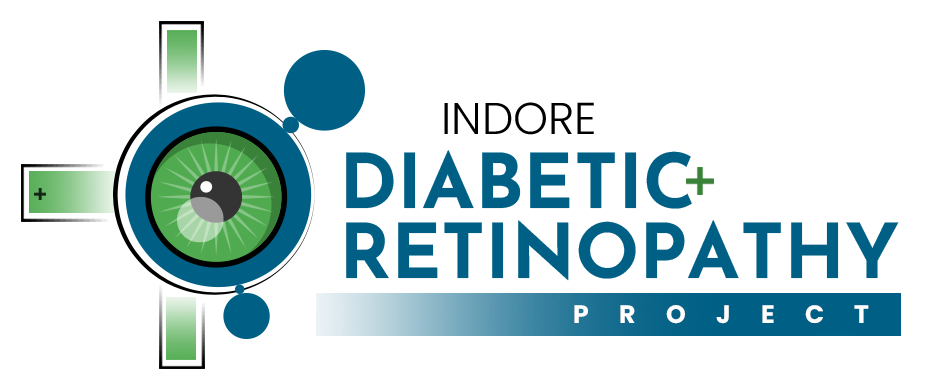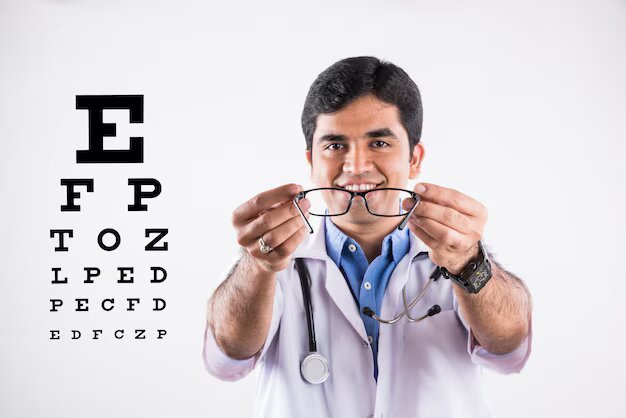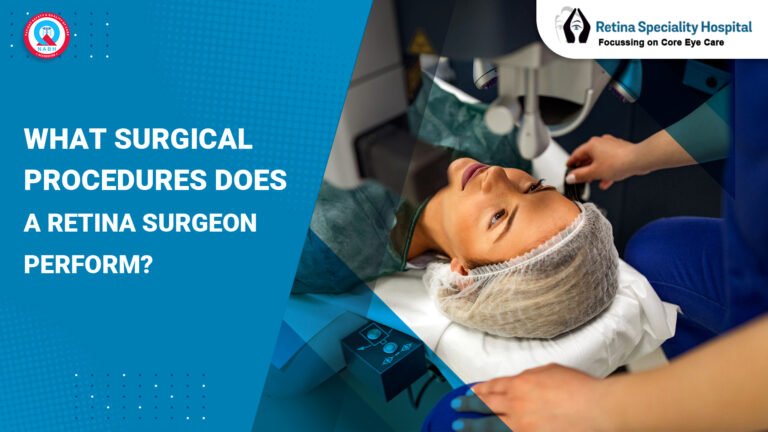Your retina Health plays a crucial role in your vision, allowing you to see the world clearly. However, conditions like diabetic retinopathy, macular degeneration, and retinal detachment can severely impact your eyesight if left untreated. If you’re searching for the best retina specialist in Indore or a reliable vision care centre for retina, this guide will provide expert tips to protect your eye health.
By reading this post, you’ll learn:
- Essential habits for maintaining retina health.
- How to identify early signs of retinal diseases.
- When to consult an eye retina specialist near me for treatment.
Top Tips to Protect Your Retina Health
1. Maintain a Healthy Diet for Strong Vision
A well-balanced diet can prevent retinal disorders and keep your eyes healthy. Foods rich in antioxidants, vitamins A, C, E, and zinc support eye function.
Best Foods for Retina Health:
- Leafy greens (spinach, kale) – High in lutein and zeaxanthin.
- Carrots and sweet potatoes – Rich in beta-carotene.
- Fatty fish (salmon, tuna) – Contains omega-3 fatty acids.
- Nuts and seeds – Provide vitamin E to combat oxidative damage.
2. Protect Your Eyes from UV Rays
Prolonged exposure to sunlight increases the risk of macular degeneration and cataracts. Wearing UV-protected sunglasses reduces damage from harmful rays. Choose sunglasses with 100% UVA and UVB protection for the best defense.
3. Monitor Your Blood Sugar and Blood Pressure
Diabetes and hypertension are leading causes of retinal diseases like diabetic retinopathy. To protect your eyes:
- Maintain stable blood sugar levels through a low-sugar diet and regular exercise.
- Control blood pressure to prevent damage to the retinal blood vessels.
4. Take Breaks from Screens to Prevent Digital Eye Strain
Long hours in front of digital screens can cause eye strain and discomfort. The 20-20-20 rule helps reduce stress on your eyes:
- Every 20 minutes, look at something 20 feet away for 20 seconds.
- Adjust screen brightness and use blue-light filters to reduce strain.
5. Get Regular Eye Check-ups from a Retina Specialist
Routine eye exams help detect retinal diseases early. If you notice symptoms like blurry vision, floaters, or flashes of light, consult a retina specialist doctor immediately.
A visit to the Indore best eye hospital can provide access to advanced diagnostics and treatment options, ensuring your retina remains healthy.
Comparison of Common Retinal Diseases and Their Symptoms
| Retinal Disease | Symptoms | Risk Factors | Treatment Options |
| Diabetic Retinopathy | Blurry vision, floaters, vision loss | Diabetes, high blood sugar | Laser treatment, injections, surgery |
| Macular Degeneration | Central vision loss, difficulty reading | Age, smoking, genetics | Anti-VEGF injections, lifestyle changes |
| Retinal Detachment | Flashes of light, shadow in vision | Trauma, high myopia, aging | Laser surgery, cryotherapy |
| Retinitis Pigmentosa | Night blindness, peripheral vision loss | Genetic condition | No cure, but vision aids can help |
6. Quit Smoking and Avoid Excessive Alcohol
Smoking accelerates retinal degeneration and increases the risk of vision loss. Similarly, excessive alcohol intake can deplete vital nutrients needed for eye health.
7. Stay Hydrated and Keep Your Eyes Moist
Dry eyes can cause discomfort and strain on the retina. Drinking enough water and using lubricating eye drops can prevent dryness.
8. Exercise Regularly for Better Blood Circulation
Regular physical activity helps maintain good blood flow to the eyes, reducing the risk of retinal diseases. Try activities like walking, yoga, or swimming to promote better ocular health.
Frequently Asked Questions (FAQs)
1. How often should I visit a retina specialist?
It’s recommended to have an eye exam once a year, especially if you have diabetes, hypertension, or a family history of retinal diseases.
2. What are the early signs of retinal problems?
Early signs include blurry vision, floaters, sudden vision loss, and difficulty seeing in dim light. If you experience any of these symptoms, visit a retina specialist doctor immediately.
3. Where can I find the best retina specialist in Indore?
For expert care, consult an experienced eye retina specialist near me at a vision care centre for retina. The Indore best eye hospital offers advanced retinal treatments to protect and restore your vision.
Conclusion
Your retina health is vital for clear vision and overall well-being. By following these expert tips, you can prevent retinal diseases and maintain strong eyesight.
If you’re experiencing any vision problems, don’t delay—schedule an appointment with the best retina specialist in Indore today!🔍 Need expert eye care? Visit a trustedvision care centre for retinanear you












